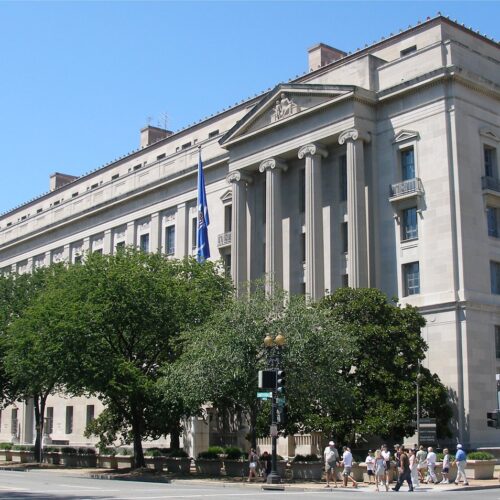Timely access to counsel declared a national priority

Pleading the Sixth: On March 2, 2023, the U.S. Department of Justice launched a national tour to commemorate the 60th Anniversary of Gideon v. Wainwright. A focus of the tour’s first stop was timely access to counsel for indigent defendants. Looking to Missouri’s recent court order in a class-action lawsuit that now requires a two-week deadline for appointing counsel, other states should follow suit and go one step further by ensuring a remedy for when this right is violated.
Last week, the U.S. Department of Justice launched a national tour to commemorate the 60th Anniversary of Gideon v. Wainwright. Perhaps in recognition of the irreparable harm inflicted on indigent defendants when they are appointed a lawyer too late in the process, a focus of the tour’s first stop was timely access to counsel.
Missouri’s struggles offer insight into why timely access to counsel is critical.
Public defender waitlists in Missouri are deemed unconstitutional
In a misguided effort to control public defender caseloads, for nearly five years judges in Missouri placed indigent defendants on waitlists for a lawyer. At one point, waitlists reached more than 5,800 cases across 29 counties, with 1,546 defendants waiting more than six months for a lawyer, including 600 waiting more than one year. Indigent defendants on a waitlist had no access to a lawyer, regardless of whether they were in or out of jail.
Last month, a Cole County Circuit Court judge issued a final order in a class-action lawsuit, ruling these waitlists unconstitutional and requiring the state to appoint a lawyer within two weeks of the initial court appearance or earlier. Any longer delay “to timely furnish counsel . . . violates the right to counsel.”
By imposing a two-week deadline by which counsel must be appointed, Missouri now gives everyone in the system – especially indigent defendants – the clarity necessary when liberty and fundamental constitutional rights are at stake.
More states should follow suit and go one step further by ensuring a remedy for when this rule is violated.
The U.S. Supreme Court’s lack of guidance on when to appoint counsel is a cost borne by indigent defendants across America
The unconstitutional waitlists in Missouri were allowed, in part, because the U.S. Supreme Court provides no guidance on exactly when to appoint a lawyer; just that it be “within a reasonable time after attachment to allow for adequate representation at any criminal stage.” But, how much time is reasonable?
A lack of clarity in the law is a vulnerability that can be exploited in times of crisis. When the covid-19 pandemic led to a mass exodus of lawyers willing to take court-appointed cases, news about states denying counsel to indigent defendants flourished:
- The Oregonian reported earlier this year that nearly 700 indigent defendants in Oregon were waiting for the state to appoint them a lawyer; 77 were waiting in jail, with one waiting in jail for five months.
- Wisconsin’s backlog of approximately 35,000 cases led to a class-action lawsuit claiming indigent defendants were waiting several months to nearly a year for the state to appoint them a lawyer; some were waiting in jail that entire time.
- The Southern Center for Human Rights obtained data that 620 indigent defendants in Georgia were waiting for the state to appoint them a lawyer; of the 113 indigent defendants in Fulton County, 29 were waiting in jail for more than a year.
The list goes on and the harms of this delay are well-known. Time is of the essence in a criminal case. Critical evidence is compromised with every passing moment; memory fades, camera footage deletes, and crime scenes contaminate. “[A] belated appointment after the dissipation of evidence does not allow for ‘adequate representation.’ This is so regardless of the advocate’s zeal once finally appointed.”
States should set a clear deadline for appointing counsel and provide a clear remedy for when this right is violated
In other contexts, states dictate clear procedural deadlines for case-related events. Probable cause determinations, detention hearings, discovery rules, motion filings, and trials are often defined by a strict timeline. Setting these specific time parameters allows the system to meet its goals of delivering fair and impartial justice in an orderly and predictable fashion. It alerts various system stakeholders when to act and holds them accountable to act.
The appointment of counsel is no different.
Massachusetts created a clear rule and remedy when it was in this predicament nearly 20 years ago. In 2004, when a shortage of lawyers willing to take court-appointed cases resulted in indigent defendants languishing without a lawyer, the Supreme Judicial Court outlined a clear remedy: “on a showing that no counsel is available to represent a particular indigent defendant despite good faith efforts, such a defendant may not be held more than seven days and the criminal case against such a defendant may not continue beyond forty-five days.”
More recently, a court in Washington County, Maine granted a similar remedy and released three indigent defendants from jail because the state could not timely give them counsel.
We hope other state courts and legislatures are inspired to set a clear deadline for when counsel must be appointed. And we hope the next time, for whatever reason, the system lapses, a clearly prescribed remedy prevents the systemic nationwide denial of counsel.


